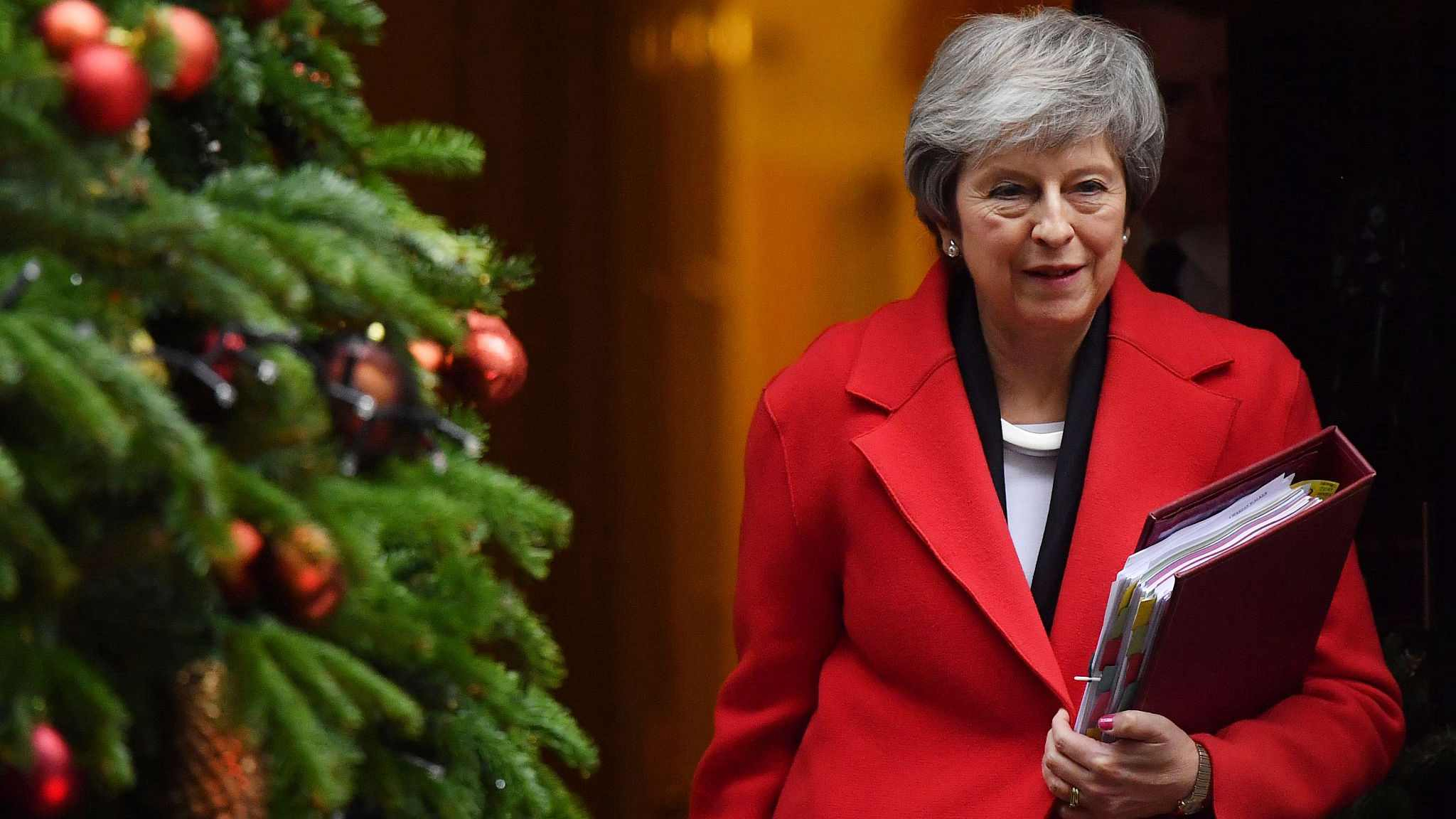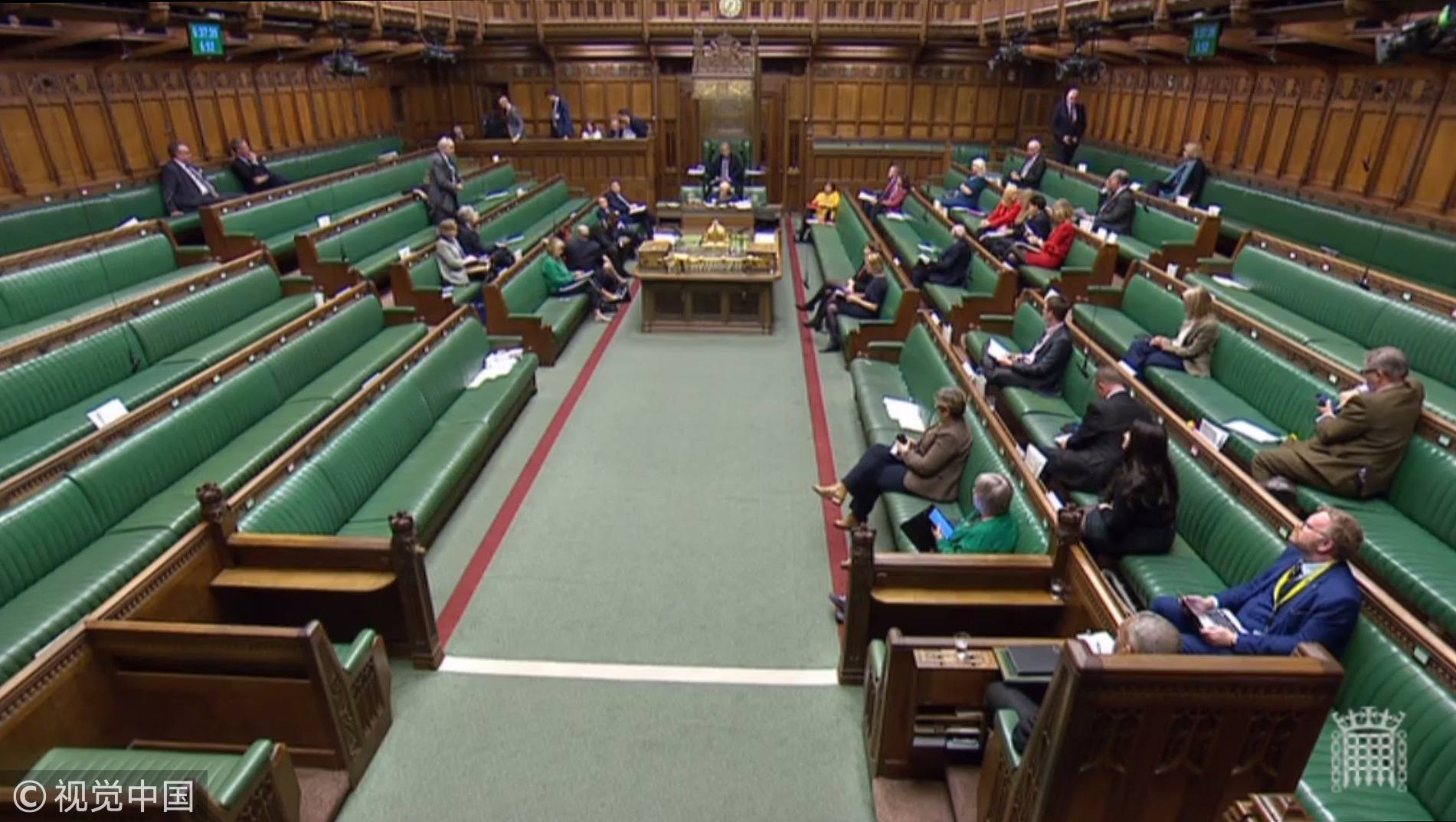
Politics
07:49, 06-Dec-2018
Brexit deal under fire: legal advice stiffens opposition
Updated
07:34, 09-Dec-2018
CGTN

Prime Minister Theresa May's Brexit deal came under fire from allies and opponents alike on Wednesday after the government was forced to publish legal advice showing the United Kingdom could be locked indefinitely in the European Union's (EU) orbit.
After a string of humiliating parliamentary defeats for May the day before cast new doubt over her ability to get a deal approved, U.S. investment bank J.P. Morgan said the chances of Britain calling off Brexit altogether had increased.
As investors and allies tried to work out the ultimate destination for the world's fifth-largest economy, Northern Ireland's Democratic Unionist Party, which props up May's government, said legal advice about the deal was “devastating.”
May was forced by parliament to publish advice from the government's top lawyer about the fallback mechanism – also known as the backstop – to prevent the return of border controls between British-ruled Northern Ireland and the EU-affiliated Irish Republic.

A video grab from footage broadcast by the UK Parliament's Parliamentary Recording Unit (PRU) shows British MPs in the House of Commons in London, December 5, 2018, during the second day of a debate on the Brexit withdrawal agreement, ahead of the "Meaningful Vote". /VCG Photo
A video grab from footage broadcast by the UK Parliament's Parliamentary Recording Unit (PRU) shows British MPs in the House of Commons in London, December 5, 2018, during the second day of a debate on the Brexit withdrawal agreement, ahead of the "Meaningful Vote". /VCG Photo
“Despite statements in the Protocol that it is not intended to be permanent and the clear intention of the parties that it should be replaced by alternative, permanent arrangements, in international law the Protocol would endure indefinitely until a superseding agreement took its place,” the advice said.
“In the absence of a right of termination, there is a legal risk that the United Kingdom might become subject to protracted and repeating rounds of negotiations.”
Meanwhile, the Scottish Parliament has voted by 92 to 29 to formally reject the UK government's draft Brexit deal.
The symbolic vote – which was not supported by the Scottish Conservatives allied to May – was a rare example of near-unity on a constitutional issue in the nationalist-led devolved parliament.
It also showed the level of anger about Brexit in Scotland where most voters backed staying in the EU in the 2016 referendum.
The vote does not have any direct impact on the debate in Britain's parliament where May's draft Brexit agreement with other EU leaders appears headed for defeat on December 11, with no clarity on what could happen next.
Source(s): Reuters

SITEMAP
Copyright © 2018 CGTN. Beijing ICP prepared NO.16065310-3
Copyright © 2018 CGTN. Beijing ICP prepared NO.16065310-3